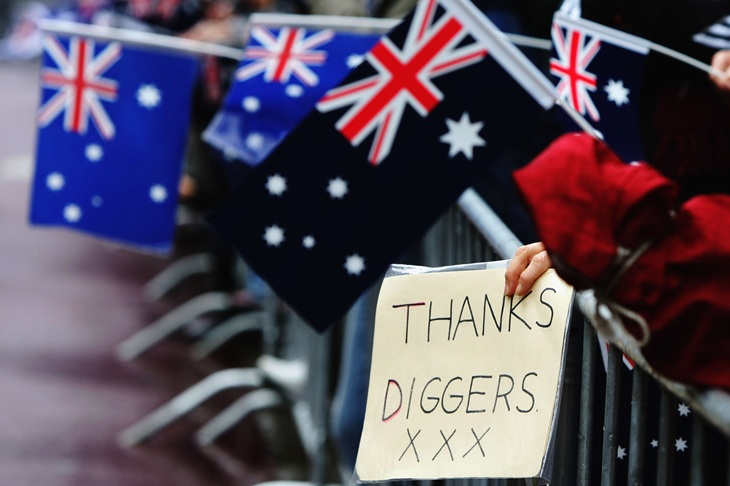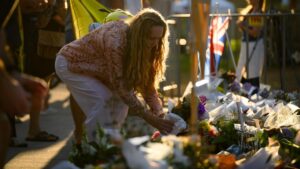
SYDNEY, AUSTRALIA - APRIL 25: A member of the public holds a thank-you sign during the Anzac day march April 25, 2007 in Sydney, Australia. Australians and New Zealanders today commemorate the 92nd anniversary of ANZAC (Australia New Zealand Army Corps) Day, when First World War troops landed on the Gallipoli Peninsula, Turkey early April 25, 1915. The day is commemorated with ceremonies of remembrance for those who fought and died in all wars. (Photo by Ian Waldie/Getty Images)
The Australian Labor government has made a controversial decision to cut funding for the Salvation Army’s military support programs, effectively jeopardizing a 125-year-old Anzac tradition. This funding, amounting to an estimated $1.5 million annually, has historically supported the role of the Sally Man, who has provided crucial morale-boosting services to Australian troops across various conflicts.
The Sally Man, a dedicated member of the Salvation Army, has been a familiar presence in military life since the late 19th century. Emerging during the Boer War, these officers became known for offering hot beverages, snacks, and emotional support to soldiers, particularly during the harrowing Gallipoli campaign in 1915. Over the decades, their contributions have been woven into the fabric of Australian identity, akin to the iconic slouch hat or rising sun badge.
In the latest federal budget, released in March 2025, the Albanese government decided to reduce funding for these frontline initiatives. This cut will significantly impact the Salvation Army’s ability to maintain its presence in barracks, during military exercises, and on deployments. As mental health issues among service members rise, including high rates of veteran suicide, critics argue that this decision undermines the very support systems needed for the well-being of Australian Defence Force (ADF) personnel.
The government has justified these cuts by claiming a need to ‘streamline efficiencies’ and redirect funds towards modern military capabilities, such as cyber defense and drone technology. Yet, for many in the military community, the true value of the Sally Man’s work lies in fostering human connections that enhance morale. As one critic noted, “Morale isn’t built on algorithms; it’s forged in human connections.”
Historical context reinforces the importance of these services. During World War I, General John Monash lauded the Salvation Army’s efforts, acknowledging their vital role in sustaining troop spirits under extreme pressure. In World War II, Sally Men were deployed alongside Anzac forces in the Pacific, providing comfort in the midst of conflict. Even in more recent operations, such as those in East Timor and Iraq, the presence of the Salvation Army has been credited with improving resilience among troops.
The proposed cuts to the Sally Man’s funding may not represent a significant impact on the overall budget, but they resonate deeply within the military community. Critics argue that the Albanese administration’s actions reflect an ideological stance that neglects the historical and emotional ties that bind the nation. This sentiment is amplified by the government’s prioritization of renewable energy projects and union-backed initiatives over the support of institutions that uphold core national values.
The consequences of diminishing morale within the armed forces can have long-term repercussions. History has shown that neglecting the needs of service members can lead to difficulties in recruitment and retention. The ADF has faced this challenge before, particularly following the Vietnam War, resulting in years of rebuilding trust and support with the community.
The call for the Albanese government is clear: restore the funding for the Salvation Army’s military support programs and honour the Anzac legacy. By doing so, the government can reaffirm its commitment to those who serve the nation, rather than allowing a vital tradition to fade away. The stakes are high, as the ongoing support of the Sally Man represents not just a historical legacy but a crucial element in maintaining the morale and mental well-being of Australian servicemen and women.







